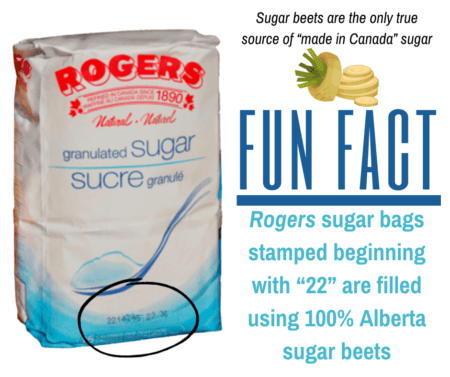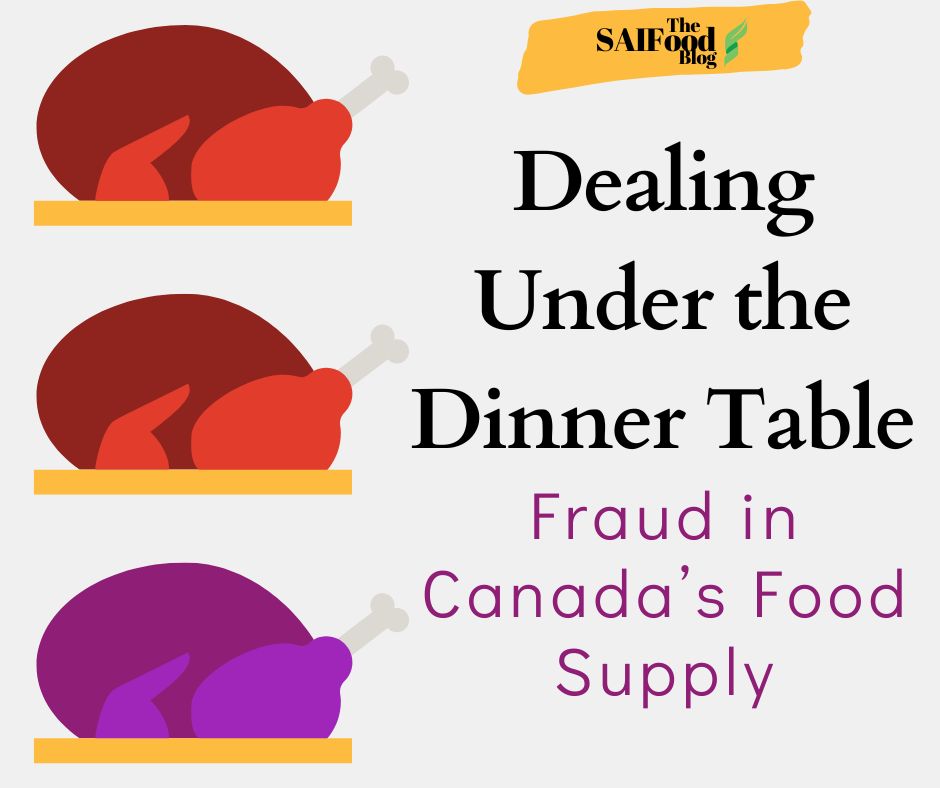Happy Halloween!
In a few short hours, Canadian streets will have more candy and chocolate than we know what to do with. While at Halloween we pay extra attention to sugar, sugar in fact has strong economic roots in Canada that are often eclipsed by bigger agronomic opportunities. Whether you’re going door-to-door to collect as much as you can carry or are just hoping to be rid of the bulk-sized bag of treats, today, sugar is the star.

Refined in Canada ≠ Canadian Sugar
As long as the result is 99.8% sucrose, then it can be called sugar in Canada, regardless of source. This distinction in Canada means one of two crops is used: sugar cane and sugar beets. Most of the sugar we Canadians buy is refined sugar cane (about 90%), as sugar beets are mainly used to make up the demand difference in the western provinces. Since Canada does not have the climate to grow sugar cane, the majority of what we consume is from imported (partially refined) sugar, further refined into the consumable forms sold in grocery stores under the names of Redpath and Rogers/Lantic and, recently, SucroCan. Due to market access and manufacturing requirements, most domestic sugar is used in industrial production (i.e. for use in other goods). As such, the price of domestic sugar and other products with sugar are subject to the movements of international sugar and sugar cane markets, and what little movement there is.
Sugar beets, making up the 10% of market consumption sugar cane does not, are grown in Alberta and refined at the Rogers facility in Taber – home of the only sugar beet refinery in Canada. (Ontario also has a small sugar beet sector however, those beets are shipped over the border for processing.) It makes sense that Alberta controls production: beets are supply-managed, highly perishable, and an extremely water-sensitive crop, requiring the long-standing and nearby sugar extraction and irrigation infrastructure Alberta has established. The heavy dependence on water is reflected in the refining process, which slices and cooks the root, then squeezes as much water out as possible to leave the sugars. That squeezed-out water can be reused in the subsequent extraction cycle, much like how the beet pulp can be reused as molasses and animal feed.
Canada's Market Bubble
 Sugar has become a dietary staple over time, growing Canada’s market by extending beyond confectionaries and desserts to establish footing in energy and supplement sectors. Without its prevalence, we would likely see fewer grocery options on our shelves as not only would the availability of certain products (i.e. soft drinks, confectionary, juices) be impacted but also the ability to maintain food safety in nonperishable goods. Healthy eating initiatives have taught us to spot high-sugar products and avoid them but the ever-presence of sugar means the national refined quantity imported in the last 10 years has remained relatively unchanged. As of 2023, the average Canadian adult consumes 110g of sugar per day, more than twice the nutritional recommendation. Some of that is avoidable, but some is the consequence of necessitated sugar.
Sugar has become a dietary staple over time, growing Canada’s market by extending beyond confectionaries and desserts to establish footing in energy and supplement sectors. Without its prevalence, we would likely see fewer grocery options on our shelves as not only would the availability of certain products (i.e. soft drinks, confectionary, juices) be impacted but also the ability to maintain food safety in nonperishable goods. Healthy eating initiatives have taught us to spot high-sugar products and avoid them but the ever-presence of sugar means the national refined quantity imported in the last 10 years has remained relatively unchanged. As of 2023, the average Canadian adult consumes 110g of sugar per day, more than twice the nutritional recommendation. Some of that is avoidable, but some is the consequence of necessitated sugar.
Canadian refineries currently operate at 100% capacity and shelves remain stocked with just-in-time inventories (i.e. without putting any sugar into storage), which causes a major risk of supply chain disruptions. An excellent example of this was the Rogers (Vancouver) refinery strike in September 2023, which kept baking aisles sparce for months. A push for a better sugar beet policy – which would likely include higher tariffs on imported sugar, increased market share for sugar beets, and renewed investment in processing and value-added plants – would allow our domestic production to cushion consumers from (sugar cane) supply chain disruptions while also increasing national sugar independence.
International Sugar Dependencies
The federal government’s healthy eating initiatives have slightly reduced Canadian sugar consumption, making us a promising candidate for international sugar relocation, but not initial investment. Some of this could be explained by processing infrastructure already established in the United States, the differences in market priorities, or the investment cost differences between sugar cane and sugar beets, but Canada, as is common in our markets, in price-taking and at the whim of international movements. Champions of our sugar beet industry point out that Canada is the only G7 country without a domestic sugar policy, opting for a free market for sugar, instead, which allows production and trade freedoms but limits farmer security. Tariffs and quota limits associated with the North American Free Trade Agreement – later the Canada-United States-Mexico Agreement (CUSMA) – and the Canada-European Trade Agreement (CETA) have limited Canada’s foothold in international markets, essentially forcing the sugar that is refined in Canada to be sold or manufactured in Canada. Rather, Canada has approached improving the situation by encouraging the World Trade Organization to address trade market accessibility challenges; without international access, Canada is hyperresponsive to international sugar changes and simultaneously cannot rely on international markets if domestic problems arise.
Despite appearing pessimistic, Canada’s sugar market is at no risk of being snuffed out by larger countries because sugar is in everything. As increased reliance on sugar in food production and preserving (especially as United States processing capacity grows) has led to a nearly 70% increase in Canadian sugar and confectionary exports since 2020. Redpath has increased the refining capacity of its Toronto facility to meet growing demand and SucroCan, which only established its Canadian market position in 2014, is set to open the largest sugar refinery in 2025. Regardless of how noticeable sugar is in your daily life, it is a foundational ingredient to many beloved food products with massive potential for sustainable domestic industry growth and Canada’s sugar sovereignty.




